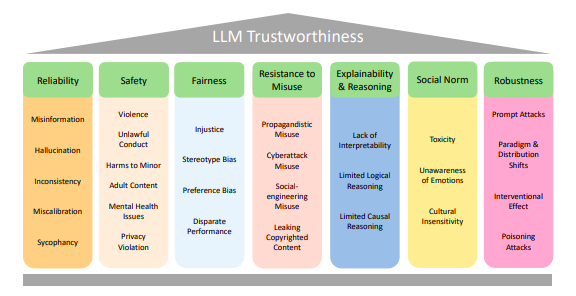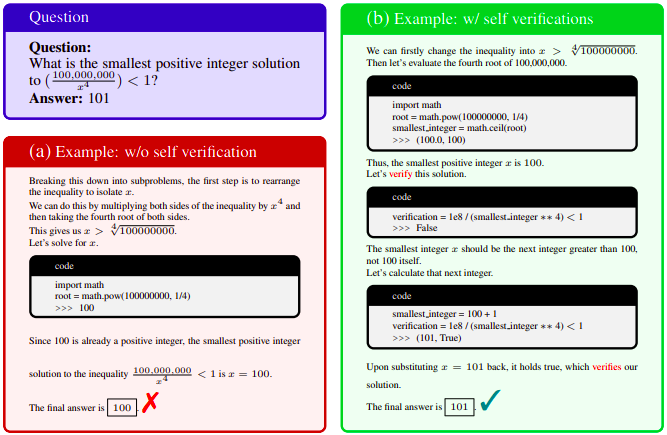AI Weekly Rundown (August 12 to August 18)
News from IBM, NVIDIA, OpenAI, Meta, and other AI giants.
Hello, Engineering Leaders and AI Enthusiasts,
Another eventful week in the AI realm. Lots of big news from huge enterprises.
In today’s edition:
✅ IBM’s AI chip mimics the human brain
✅ NVIDIA’s tool to curate trillion-token datasets for pretraining LLMs
✅ Trustworthy LLMs: A survey and guideline for evaluating LLMs' alignment
✅ GPT-4 to replace content moderators
✅ Microsoft launches private ChatGPT
✅ Meta beats ChatGPT in language model generation
✅ GPT-4 Code Interpreter masters math with self-verification
✅ AI reconstructs song from brain activity
✅ Saudi Arabia and UAE join the race for scarce Nvidia chips
✅ Meta challenges OpenAI with code-gen free software
✅ Meta AI’s new RoboAgent with 12 skills
✅ Microsoft-DataBricks collab may hurt OpenAI
Let’s go!
IBM’s AI chip mimics the human brain
The human brain can achieve remarkable performance while consuming little power. IBM’s new prototype chip works similarly to connections in human brains. Thus, it could make AI more energy efficient and less battery draining for devices like smartphones.
The chip is primarily analogue but also has digital elements, which makes it easier to put into existing AI systems.
It addresses the concerns raised about emissions from warehouses full of computers powering AI systems. It could also cut the water needed to cool power-hungry data centers.
NVIDIA’s tool to curate trillion-token datasets for pretraining LLMs
Most software/tools made to create massive datasets for training LLMs are not publicly released or scalable. This requires LLM developers to build their own tools to curate large language datasets. To meet this growing need, Nvidia has developed and released the NeMo Data Curator– a scalable data-curation tool that enables you to curate trillion-token multilingual datasets for pretraining LLMs. It can scale the following tasks to thousands of compute cores.
The tool curates high-quality data that leads to improved LLM downstream performance and will significantly benefit LLM developers attempting to build pretraining datasets.
Trustworthy LLMs: A survey and guideline for evaluating LLMs' alignment
Ensuring alignment, which refers to making models behave in accordance with human intentions, has become a critical task before deploying LLMs in real-world applications. This new research has proposed a more fine-grained taxonomy of LLM alignment requirements. It not only helps practitioners unpack and understand the dimensions of alignments but also provides actionable guidelines for data collection efforts to develop desirable alignment processes.
It also thoroughly surveys the categories of LLMs that are likely to be crucial to improve their trustworthiness and shows how to build evaluation datasets for alignment accordingly.
GPT-4 to replace content moderators
OpenAI aims to use its GPT-4 to solve the challenge of content moderation at scale. Also, they already used GPT-4 to develop and refine their own content policies. It provides three major benefits: consistent judgments, faster policy development, and improved worker well-being. However, perfect content moderation remains elusive, as both humans and machines make mistakes, particularly in handling misleading or aggressive content.
GPT-4 can interpret complex policy documentation and adapt instantly to updates, reducing the cycle from months to hours. This AI-assisted approach offers a positive future for digital platforms, where AI can help moderate online traffic and relieve the burden on human moderators.
Microsoft launches private ChatGPT
Microsoft now offers OpenAI's ChatGPT model in its Azure OpenAI service, allowing developers and businesses to integrate conversational AI into their applications. ChatGPT can be used to power custom chatbots, automate emails, and provide summaries of conversations.
Azure OpenAI users can access a preview of ChatGPT starting today, with pricing set at $0.002 for 1,000 tokens. ChatGPT on Azure solution accelerator is an enterprise option. This solution provides a similar user experience to ChatGPT but is offered as your private ChatGPT.
Microsoft Azure ChatGPT offers several benefits to organizations:
Ensures data privacy with built-in guarantees and isolation from OpenAI-operated systems.
Allows full network isolation and offers enterprise-grade security controls.
Enhances business value by integrating internal data sources and services like ServiceNow.
Meta beats ChatGPT in language model generation
Shepherd is a language model designed to critique and improve the outputs of other language models. It uses a high-quality feedback dataset to identify errors and provide suggestions for refinement. Despite its smaller size, Shepherd's critiques are either equivalent or preferred to those from larger models like ChatGPT. In evaluations against competitive alternatives, Shepherd achieves a win rate of 53-87% compared to GPT-4.
Shepherd outperforms other models in human evaluation and is on par with ChatGPT. Shepherd offers a practical and valuable tool for enhancing language model generation.
GPT-4 Code Interpreter masters math with self-verification
OpenAI's GPT-4 Code Interpreter has shown remarkable performance on challenging math datasets. This is largely attributed to its step-by-step code generation and dynamic solution refinement based on code execution outcomes.
Expanding on this understanding, new research has introduced the innovative explicit code-based self-verification (CSV) prompt, which leverages GPT4-Code’s advanced code generation mechanism. This prompt guides the model to verify the answer and then reevaluate its solution with code.
The approach achieves an impressive accuracy of 84.32% on the MATH dataset, significantly outperforming the base GPT4-Code and previous state-of-the-art methods.
AI reconstructs song from brain activity
Neuroscientists recorded electrical activity from areas of the brain (yellow and red dots) as patients listened to the Pink Floyd song “Another Brick in the Wall, Part 1.” Using AI software, they were able to reconstruct the song from the brain recordings. This is the first time a song has been reconstructed from intracranial electroencephalography recordings.
Saudi Arabia and UAE join the race for scarce Nvidia chips
Saudi Arabia has purchased at least 3,000 of Nvidia's H100 chips at $40,000 apiece, while UAE has ordered a fresh batch of semiconductors to power its LLM. This signals the Gulf states’ intention to become major players in AI by buying up thousands of Nvidia's GPUs which are vital in powering the boom in generative AI that has swept markets this year.
Meta challenges OpenAI with code-gen free software
Meta is set to release Code Llama, an open-source code-generating AI model that competes with OpenAI's Codex. The software builds on Meta's Llama 2 model and allows developers to automatically generate programming code and develop AI assistants that suggest code.
Llama 2 disrupted the AI industry by enabling companies to create AI apps without relying on proprietary software from major players like OpenAI, Google, or Microsoft. Code Llama is expected to launch next week, further challenging the dominance of existing code-generating AI models in the market.
Meta AI’s new RoboAgent with 12 skills
Meta and CMU Robotics Institute’s New Robotics research: RoboAgent. It is a universal robotic agent that can efficiently learn and generalize a wide range of non-trivial manipulation skills. It can perform 12 skills across 38 tasks, including object manipulation and re-orientation, and adapt to unseen scenarios involving different objects and environments.
The development of the RoboAgent was made possible through a distributed robotics infrastructure, a unified framework for robot learning, and a high-quality dataset. The agent also utilizes a language-conditioned multi-task imitation learning framework to enhance its capabilities. Meta is open-sourcing RoboSet, a large, high-quality robotics dataset collected with commodity hardware, to support and accelerate open-source research in robot learning.
Microsoft-DataBricks collab may hurt OpenAI
Microsoft is reportedly planning to sell a new version of Databricks software, It helps customers create AI applications for their businesses. This move could potentially harm OpenAI, as Databricks allows companies to develop AI models from scratch or repurpose open-source models instead of licensing OpenAI's proprietary ones.
Microsoft has been aggressively investing in AI services and integrating AI functionality across its products. Neither Microsoft nor Databricks have commented on the report.
That's all for now!
If you are new to ‘The AI Edge’ newsletter. Subscribe to receive the ‘Ultimate AI tools and ChatGPT Prompt guide’ specifically designed for Engineering Leaders and AI enthusiasts.
Thanks for reading, and see you on Monday! 😊







